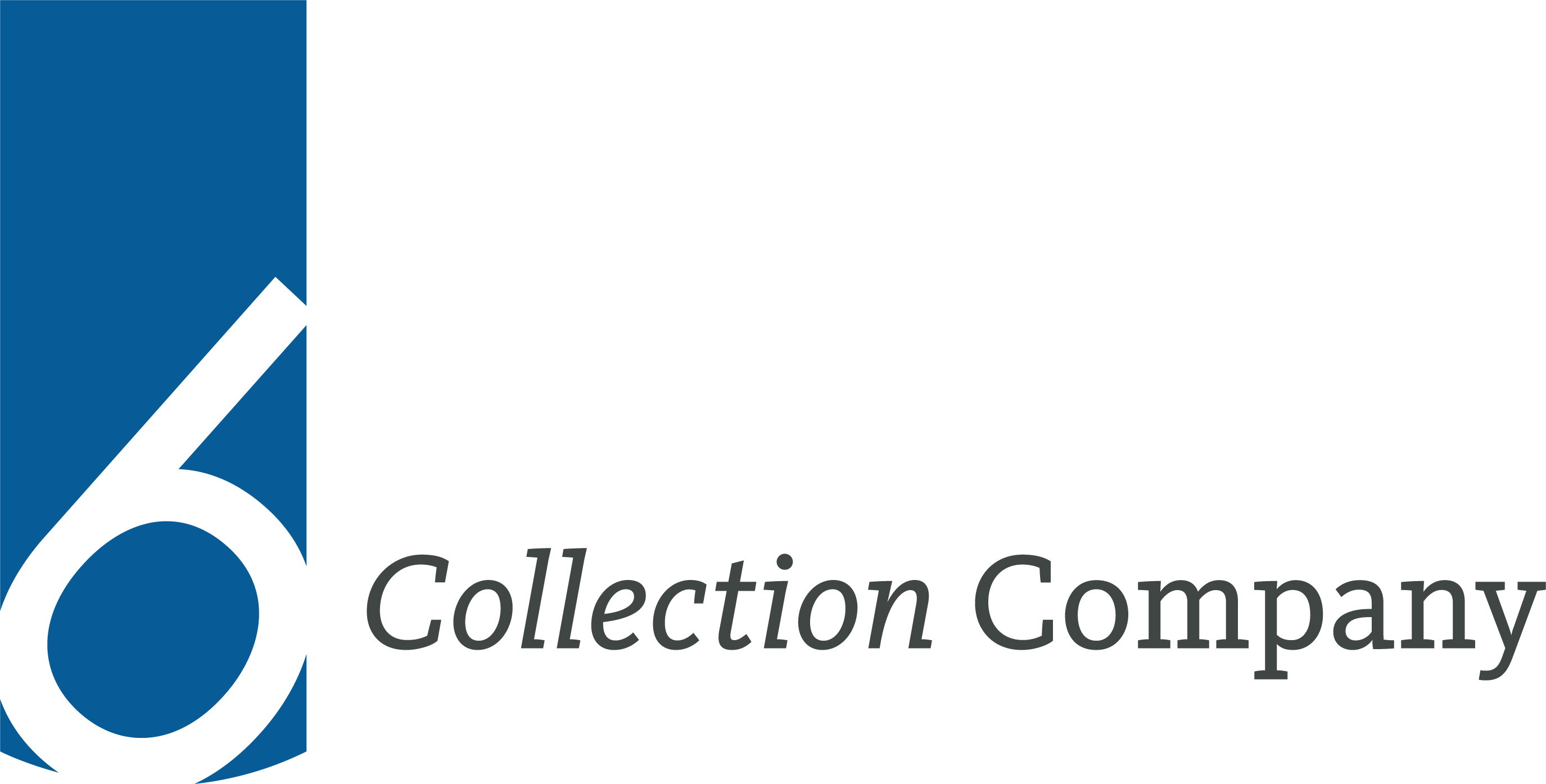Debt Collection Netherlands: the most advanced recovery strategy
Are you dealing with a debtor in the Netherlands that doesn’t pay outstanding invoices? This can be very frustrating and cause a lot of stress. After all, you don’t want to spend time chasing your debtor to get your money .
Do you want the matter to be finally resolved and get your money as soon as possible? Then feel free to contact us directly for both Dutch and international debt collection services and engage our collection agency.
- Nationwide coverage in Netherlands
- One dedicated English speaking contact
- Proven track record
- Tailor-made services for each case
- Expert advice and a transparent process
- 24/7 online access
Are you looking for a Dutch debt collection agency?
Are you looking for a non-paying client in the Netherlands who seems to have suddenly disappeared? Or do you have other unpaid debts in the Netherlands? Take immediate action if you have outstanding claims abroad. The longer you wait, the smaller the chance of recovering anything from your debtor.
Collection Company is a debt recovery agency based in the Netherlands. We specialize in international debt collection and have an extensive network of collection specialists like debt collection attorneys, lawyers and bailiffs in the Netherlands. They assist us in collecting what you are owed.
Our dedicated English-speaking contact person will guide you through the collection process, so you don’t have to speak Dutch. Track the progress of the recovery process through our user-friendly online cockpit.
Do you have an unpaid debt in the Netherlands? Leave your details and one of our debt collection specialists will contact you to discuss your claim. Optimize your chances of successful debt collection now.
Free debt collection submission
Do you have a debt collection case in the Netherlands? Please leave your contact information and one of our specialists will get in touch with you as soon as possible to discuss your case.

Why choose Collection Company for debt collection in the Netherlands?
- Global coverage
- One dedicated English speaking contact
- Experienced debt collection specialists with knowledge of Dutch legislation
- Broad network with local lawyers and bailiffs
- Seamless connection from extrajudicial to judicial action
- Effective local approach
- 24/7 tracking through your own Online Cockpit
From amicable debt collection to a lawsuit
At Collection Company, we offer debt collection services, legal support by lawyers and attorneys, and bailiff services. This way, we can gradually increase the pressure on your debtor. We first try to recover your money amicably by sending reminders and contacting your debtor by phone.
If this has no effect, we are not afraid to initiate legal proceedings. In most cases, the debtor complies and pays the amount owed upon receiving the summons.
If this is not the case, our lawyers can file the lawsuit. If there is a court judgment and your debtor still does not pay, a bailiff can seize the debtor’s assets.
This approach has a success rate of 95%.
- Upload your invoice online
- We'll start your case
- We'll start with the debt collection process
- Together we decide the best strategy for collecting your debts
- Monitor the status of your case 24/7
- Any questions? Your personal accountmanager will answer them all!
- Your invoice is paid
Extrajudicial debt collection in the Netherlands
We always prefer to initiate the collection process through extrajudicial means. Why? Because in many cases, a clear payment reminder with our name on it, accompanied by a phone call to the debtor, is sufficient to secure payment of the invoice. This makes extrajudicial collection the fastest and most efficient method for recovering your claim.
The advantage of an extrajudicial approach is that it helps to maintain a positive relationship with your customer. It allows for the possibility of a genuine misunderstanding or a valid reason for the delayed payment. By following this procedure, you provide the debtor with an opportunity to settle their debts in good faith.
During the extrajudicial collection process, we will reach out to your debtor on 16 occasions within a three-week period. We gradually increase the pressure to encourage prompt payment. Ultimately, your debtor will receive a final reminder, clearly stating the implications of not settling the outstanding amount within the specified period, including the associated (escalating) costs.
Fortunately, the majority of debtors are wise enough to avoid reaching that stage. They promptly settle the outstanding invoice, enabling us to close the case.
Judicial debt collection proceedings in the Netherlands
In a small number of cases, we are unable to collect your money through an out-of-court procedure. If your debtor fails to pay after an amicable recovery procedure, that doesn’t mean we can’t collect your money. If your debtor refuses to pay, we always have the option to initiate a legal procedure. After all, you are entitled to what you are owed.
Because at Collection Company we work together with the best Dutch bailiffs and lawyers we are able to quickly initiate a judicial procedure. This way the out-of-court and judicial phases seamlessly merge.
The judicial collection starts with the summons of your debtor. The summons (dagvaarding) is an official call to appear before the court. For this, we need to engage a bailiff since the summons can only be served (handed over) to your debtor by a bailiff (deurwaarder). A debt collection agency without bailiffs does not have the ability to initiate a legal procedure.
The court where your case will be heard depends on the amount of the claim:
- Claims under €25,000: at the subdistrict court (kantonrechter)
- Claims exceeding €25,000: at the civil court (civiele rechter)
During the court hearing, your debtor has the opportunity to present a defense. If they fail to do so, the judge will issue a default judgment that is automatically in your favor. If your debtor disputes the claim, both parties can submit evidence, call witnesses if necessary, and substantiate their position before the court.
Throughout the judicial procedure, your interests are represented by our legal experts and, if required, by an attorney.
Ultimately, the judge will render a decision. This decision will be recorded in a judgment. If the judge grants your claim, we can enforce the judgment by seizing assets from your debtor.
For cases that are not too complicated it is also possible to request a summary judgment at the Interlocutory court. With summary proceedings the judge will usually issue a verdict within 2 weeks.
European Small Claims Procedure
If the debtor lives in the Netherlands and you live in a different EU member state, it is not always necessary to go to court in the Netherlands. There are special European procedures to collect cross-border claims. These procedures have been established to make it easier to collect unpaid bills abroad (but within the EU).
For example, if you have a claim under 5,000 euros, we can use the European Small Claims Procedure (ESCP).
This fast-track procedure is completely digital. We can submit your claim to the court in your country and the court will forward the claim to your Dutch debtor. Your debtor can raise objections, and both parties can bring in (digital) evidence. The judge may even organize a video call hearing.
Ultimately, the court will make a ruling. This judgment is enforceable in all EU countries (except Denmark).
European Payment Order (EPO)
The European Payment Order is meant for undisputed cross-border claims. When your debtor does not dispute your claim but simply doesn’t reply to your reminders and notifications, it is considered an uncontested claim. In such cases, we can apply for a European Payment Order (EPO), even if the claim exceeds 5,000 euros.
We can request a European Payment Order from the designated court in your own country. They will prepare the payment order based on various standard forms that we fill out on your behalf. The payment order is then sent to your debtor. The debtor has the opportunity to object to the claim. If this does not happen, we can directly enforce the European Payment Order, without the need to first see a judge in the Netherlands.
How does debt collection in the Netherlands work?
Step 1
We start with pre-collection. We call your debtor and kindly remind them of the outstanding invoice.
Step 2
If your debtor does not pay, we proceed with an amicable collection process: we contact your customer (without involving the court). We send your debtor a demand letter in our name: a final written reminder for your debtor to pay. Our experience is that in 85% of cases, debtors pay after the first or second demand letter.
Step 3
If amicable collection does not yield the desired results, we will consult with you to continue the procedure by means of legal steps. For example, we can file a lawsuit. When we have a judgment we can engage a bailiff to enforce the judgment. An alternative for a lawsuit would be to petition for bankruptcy of your debtor.
Interim attachment in the Netherlands
Legal action can take a while. Of course, we don’t want your debtor to use that time to hide their assets, leaving nothing to collect once the court makes a ruling. Therefore we can ask the judge to take precautionary measures in the way of a prejudgment attachment.
Interim attachment (conservatoir beslag) is a (temporary) attachment, intended to prevent your debtor from selling, giving away, concealing, or otherwise disposing of his assets before the judge has made a decision.
Before we file a lawsuit, we can ask the judge permission for an interim attachment. If a judge gives this permission, a bailiff can secure assets, for example by means of putting an attachment on income, bank accounts, trade inventories, business machinery, real estate, and other assets. This way, we know for sure that a future court ruling can be executed.
An interim attachment is also a way to put pressure on your debtor. As long as the court case is pending, your debtor cannot make use of his assets. This can, for example, cause part of the business operations to come to a standstill. Therefore, many debtors choose to pay the outstanding debt. Once the debt has been paid, we can lift the interim attachment.
Enforcement procedures in the Netherlands
If the court has ruled in your favor, but your debtor still doesn’t pay, a bailiff can enforce the court’s judgment by seizing your debtor’s assets. The seized goods are publicly auctioned, and you, as the creditor, are paid from the proceeds.
To execute the seizure of assets, a bailiff must first serve (deliver) the judgment to your debtor. Typically, your debtor is given two or three days (the compliance period) to settle the outstanding debt, including collection costs, legal expenses, and bailiff fees. If payment is not made, the bailiff can proceed to seize your debtor’s assets, for example income, bank accounts, cars or real estate.
Collection Company works with the best bailiffs in the Netherlands. As a result we can execute the complete debt recovery procedure, including the enforcement proceedings.
Bankruptcy petition
Does your debtor claim that he cannot pay the outstanding invoice? Filing for bankruptcy of your debtor is one of the most powerful means of pressure to get your outstanding invoices paid.
According to the Dutch law, we can file for bankruptcy of your debtor if:
- Your defaulter has two or more debts, of which one is due (the payment term has expired).
- There are two or more creditors.
- The defaulter has stopped making payments.
To initiate a bankruptcy procedure, we will engage a lawyer in the Netherlands to file the bankruptcy petition. This is done at the court in the region where your debtor is located.
The court often handles the bankruptcy application within two weeks. After that, the debtor receives a summons to appear at the hearing with the notice that they will be declared bankrupt. In most cases, they then pay immediately. If your debtor has paid the full amount, we will stop the procedure for you.
It is also possible that the debtor calls us and wants to make a payment arrangement. Usually, we accept a short-term payment arrangement. In that case, however, we often keep the bankruptcy application pending with the judge for a few more weeks. The debtor must also pay the costs of the bankruptcy application. If they do not do this, we will also keep the request pending.
If the debtor refuses to pay, we will continue the bankruptcy procedure. If the judge declares the defendant bankrupt at the hearing, the court appoints a trustee to the case.
The trustee investigates whether the defaulter can still pay the creditor. If this is not the case, the trustee acts on behalf of the bankrupt and represents the interests of the creditors.
The trustee manages the company and arranges the liquidation of the bankrupt estate. Creditors are paid from the company’s assets or even from the director’s assets.
Need free advice on your case?
Submit your contact details and one of our debt collection specialists will contact you immediately!

Legal areas of debt collection in the Netherlands
Whether it’s unpaid wages, outstanding invoices, or a rental or purchase dispute in the Netherlands, Collection Company recovers your claim. As an international debt collection agency in the Netherlands we recover debts in various legal jurisdictions.
- Construction law
- Rental and leasing
- Buying and selling
- Labor law
- Agency agreement
- Transport
- Damages and wrongful acts
We assist the client directly, but also work for intermediaries such as lawyers and accountants.
Anything else we can help you with in the Netherlands?
- Reliable advice on contracts and terms
- Credit information on companies in the Netherlands
- Disputes regarding retention of title and right of reclamation
- Mediation in reaching private agreements and settlements
File your claim immediately
Submit your claim directly to us via the debt collection registration form. Would you prefer to first consult with one of our debt collection specialists? Leave your details or call us at 070 – 410 2800.
Free advice on debt collection in the Netherlands
Submit your contact details and one of our debt collection specialists will contact you immediately!

FAQ: Frequently Asked Questions about debt collection Netherlands
FAQ: What documents do I need to submit for debt recovery in the Netherlands?
If you want to file a claim in the Netherlands, we kindly request (copies of) all the paperwork related to the claim. This may for example include signed contracts, sent invoices, or payment reminders. These documents will help us support your claim if we need to initiate legal proceedings.
We understand that your file may not be complete. That’s not a problem. Together with our debt collection specialist, you can discuss what evidence you have to support your claim.
If possible, we would like to receive the following documents:
- A copy of the agreement
- Email correspondence confirming the agreement
- A fax confirmation
- Your summary of the agreed terms
- Invoices
- Reminders
- A copy of your general terms and conditions
- Any proof of delivery, if available.
FAQ: Is a retention of title valid in the Netherlands?
If you deliver goods to customers, ownership transfers directly to your customer, even if they don’t pay afterwards. You cannot simply retrieve your items if your customer doesn’t pay the invoice.
However, if you agree on a retention of title, it is possible. With a retention of title, you stipulate that ownership only transfers to the customer once they have fully paid the bill. If that doesn’t happen, you can reclaim the delivered goods. For example, we can include a retention of title clause in your general terms and conditions.
FAQ: Is it possible to use arbitration instead of a judicial procedure?
To avoid lengthy legal proceedings, arbitration is often used in business to resolve legal disputes. For example, you can stipulate in your terms and conditions or purchase agreement that disputes with debtors will be settled through arbitration. An arbitration committee’s decision is binding.
FAQ: Is there a statute of limitations for my claim?
Most claims in the Netherlands have a limitation period of 5 years. If a claim is included in a court judgment, the limitation period of 20 years applies. Additionally, there are claims with a shorter limitation period of 2 years.
What can I expect after engaging Collection Company?
After you’ve submitted your claim with Collection Company through the contact form, one of our employees will personally contact you.
To ensure that your debtor pays on time, the agent will indicate the next steps in the debt collection process. Often, this involves a reminder or even a demand letter to urge the debtor to pay the claim. If this is not sufficient to collect the amount owed, and the procedure continues, then lawyers or bailiffs are needed. Collection Company can also assist you with this.
Why 40.000 customers have gone before you
- The #1 collection company in the Netherlands and abroad
- Regional & local specialists
- Years of experience with international invoices
- Your own personal contact
- Extensive advice on the legal process
- Monitor the status of your case 24/7

Meet our specialized legal team
- Joost Konings LLMLaw expert
- May Leung LLMLaw expert
- Wesley Boeters LLMInterim lawyer




